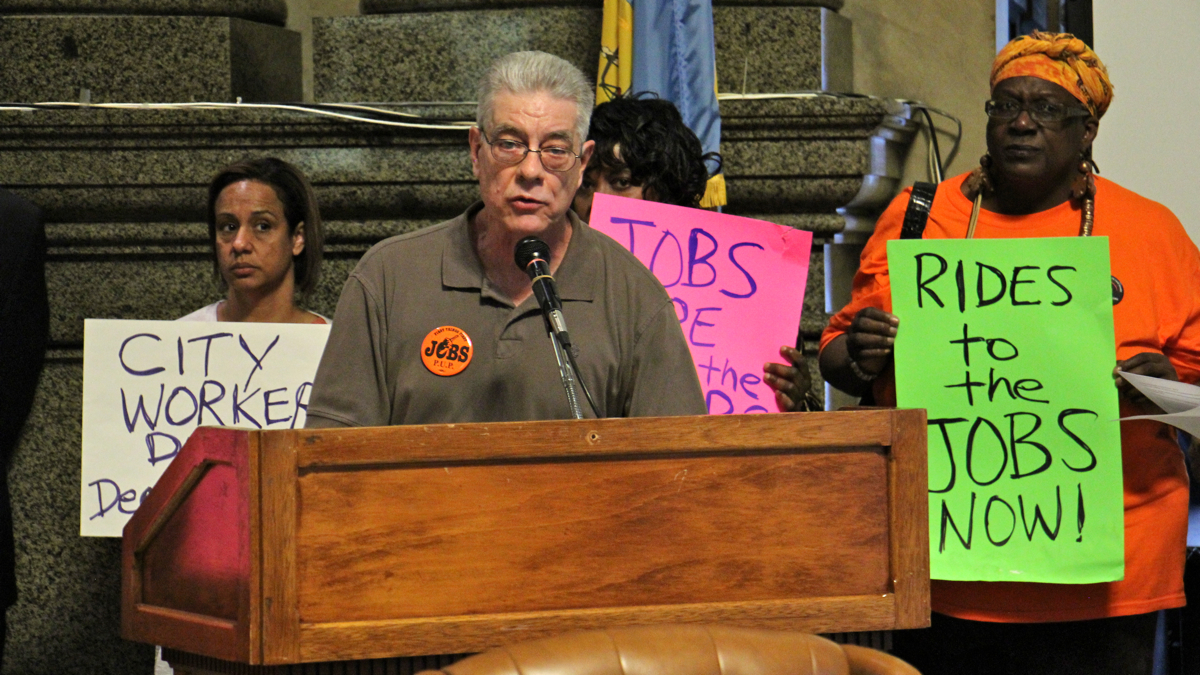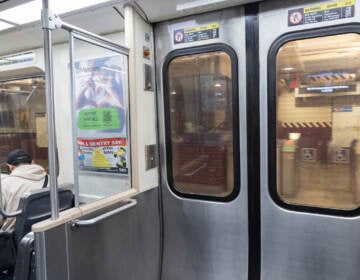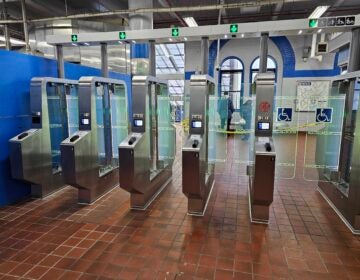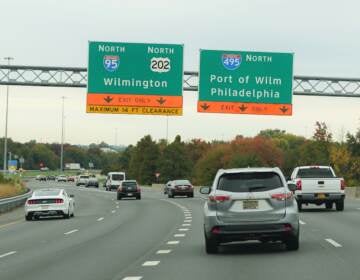Philadelphia Unemployment Project rallies for more reverse commuting funds

The Philadelphia Unemployment Project (PUP) held a City Hall rally Monday morning to urge City Council to supply more funds for it reverse commuting ride-share program. At the rally, Fourth District Councilman Curtis Jones Jr., pledged to “raise the issue” at City Council on Thursday.
Philadelphia is a dense city. Center City District likes to crow every year how Philly’s downtown is the second densest in the United States to Manhattan. But Philadelphia sprawls out and takes up a whole lot of space in one specific metric: jobs. The Philadelphia region is the fourth most decentralized in terms of employment, per a 2013 Brookings Institution paper on job sprawl. That was worse than in 2009, when Philly was fifth.
While Center City and University City both have relatively large concentrations of jobs, the suburbs are where more employment can be found. Philadelphia has around 26 percent of the region’s jobs, down from around 50 percent in 1970 (Philadelphia’s population has also declined since then, going from around half of the region to just 38 percent, per census figures, and the job loss has been more severe than the decline in residents).
The reason why jobs in the region aren’t as concentrated as elsewhere is complex, but many observers place blame on the city’s tax regime, which places relatively high taxes on wages compared to other cities, which instead rely on property taxes.
The city’s recent jobs boom has been a relatively new reversal in misfortune, and one that has come later and slower compared to some peer cities. Most of the jobs remain outside the city, where it’s difficult for SEPTA to run buses efficiently. Mass transit tends operates most effectively when a number of passengers can be picked up along the way to relatively concentrated set of destinations — think subway cars that fill up heading towards Center City, then empty out as riders head off to work or shop.
Recognizing the relative lack of economic opportunities in the city itself for Philadelphia’s unemployed residents, PUP runs a reverse commuting ride-share program. Originally paid with a federal jobs access reverse commute grant, the program allows individuals to rent vans from PUP for $24 a day — almost half what commercial ride-share programs cost. The program identifies nearby residents looking for work and job opportunities nearby to help create carpooling opportunities.
But PUP’s program has shrunk as federal funds have dried up. Once 32 vans strong, it’s now down to 14. It is asking Council for $750,000 in new funds to purchase more vans and increase the program size to 300. PUP points to Seattle’s jobs access reverse commute program, and it’s 1,500 vans, as its aspiration.
At the rally, Councilman Jones noted that Councilman Derek Green was also in attendance. “We have two here. We need nine in Councilmanic math,” he said, referring to the minimum number of votes required to pass a bill.
PUP’s existing program is funded with around $350,000 annually in state money provided through SEPTA. PUP has asked SEPTA to increase funding. According to PUP’s executive director, John Dodds, SEPTA said that was an issue for the City of Philadelphia to decide.
At SEPTA’s budget hearing before City Council in May, Council President Darrell Clarke seemed to ask SEPTA’s general manager, Jeff Knueppel, to ask the city for more money for PUP’s reverse commuting ride-share.
“If we were to put money into the program, it would create a situation where we would have to ask for additional dollars from the City to keep our match working right,” said Knueppel. “We don’t typically work that way.”
“It’s not important enough to ask for additional support?” Clarke asked in response. “I’m just trying to not have to send you a letter in mid-fiscal year and ask you to please put some more money in the budget for this particular issue.”
SEPTA ultimately did not request more money. Philadelphia is represented on SEPTA’s board by two directors selected by the Mayor.
When asked for comment on the program’s funding request, Mayoral spokesman Mike Dunn responded by email. “The Administration is focused on bringing jobs to Philadelphia, not funding transportation so residents can drive to the suburbs. The Administration is developing a citywide workforce development strategy that recognizes transportation as a key barrier to jobs – both regional and local.”
While $750,000 a year for 300 commuters might seem expensive, it actually runs cheaper than SEPTA’s Regional rail on a per trip basis: assuming the commuters make two trips a day, 261 working days a year, that’s $4.79 per trip, compared to $7.84 per trip on the commuter train. Even when you factor in SEPTA ticket revenues, the reverse commuter program stacks up favorably.
WHYY is your source for fact-based, in-depth journalism and information. As a nonprofit organization, we rely on financial support from readers like you. Please give today.






